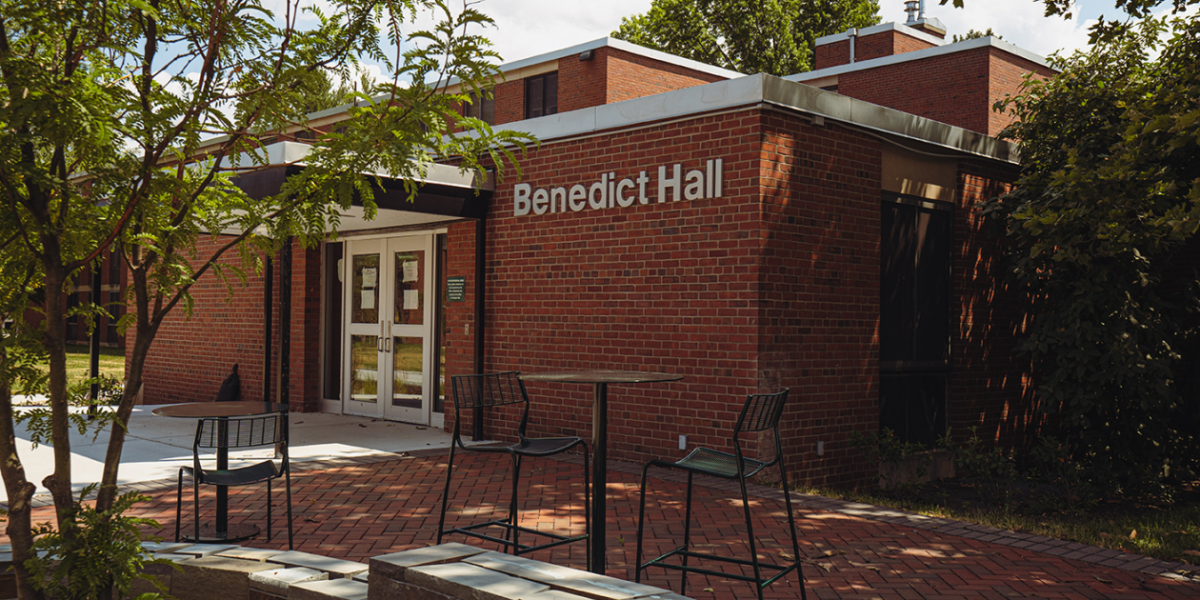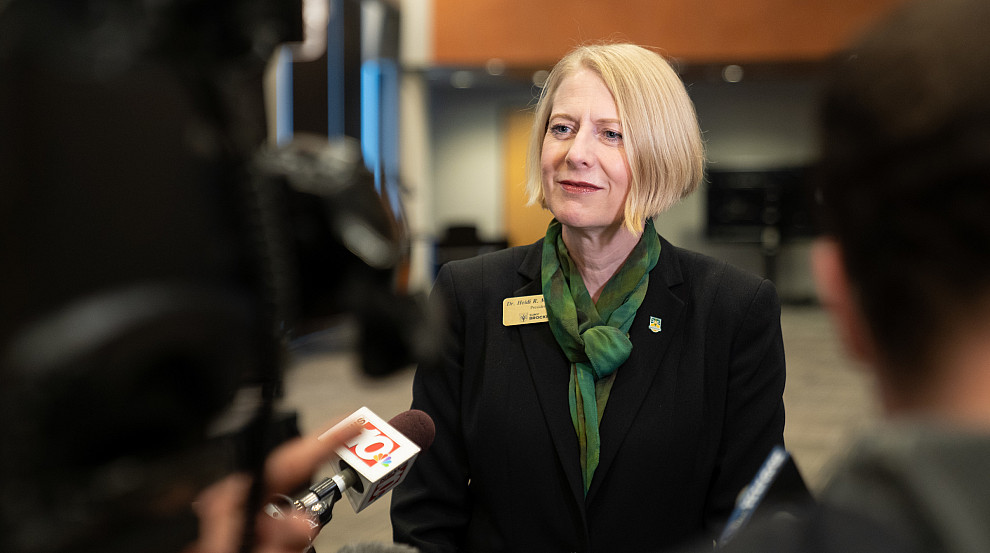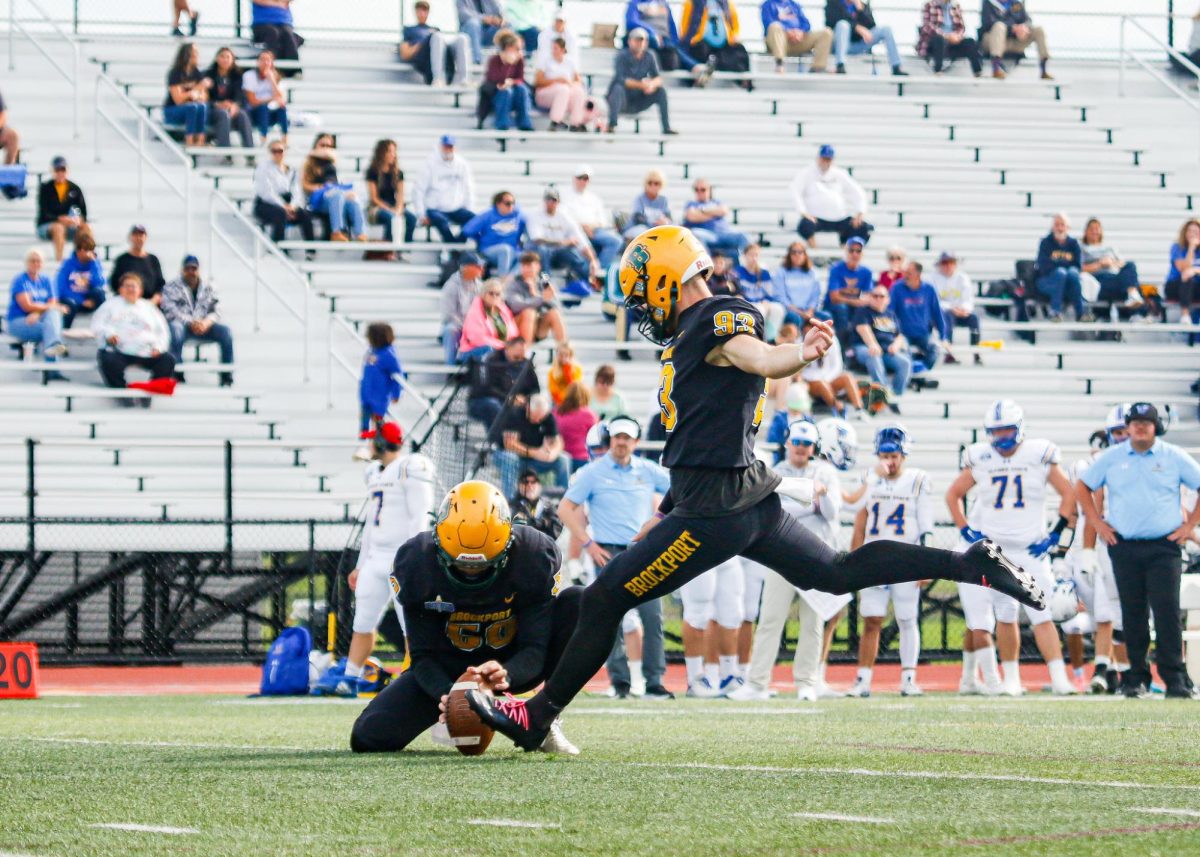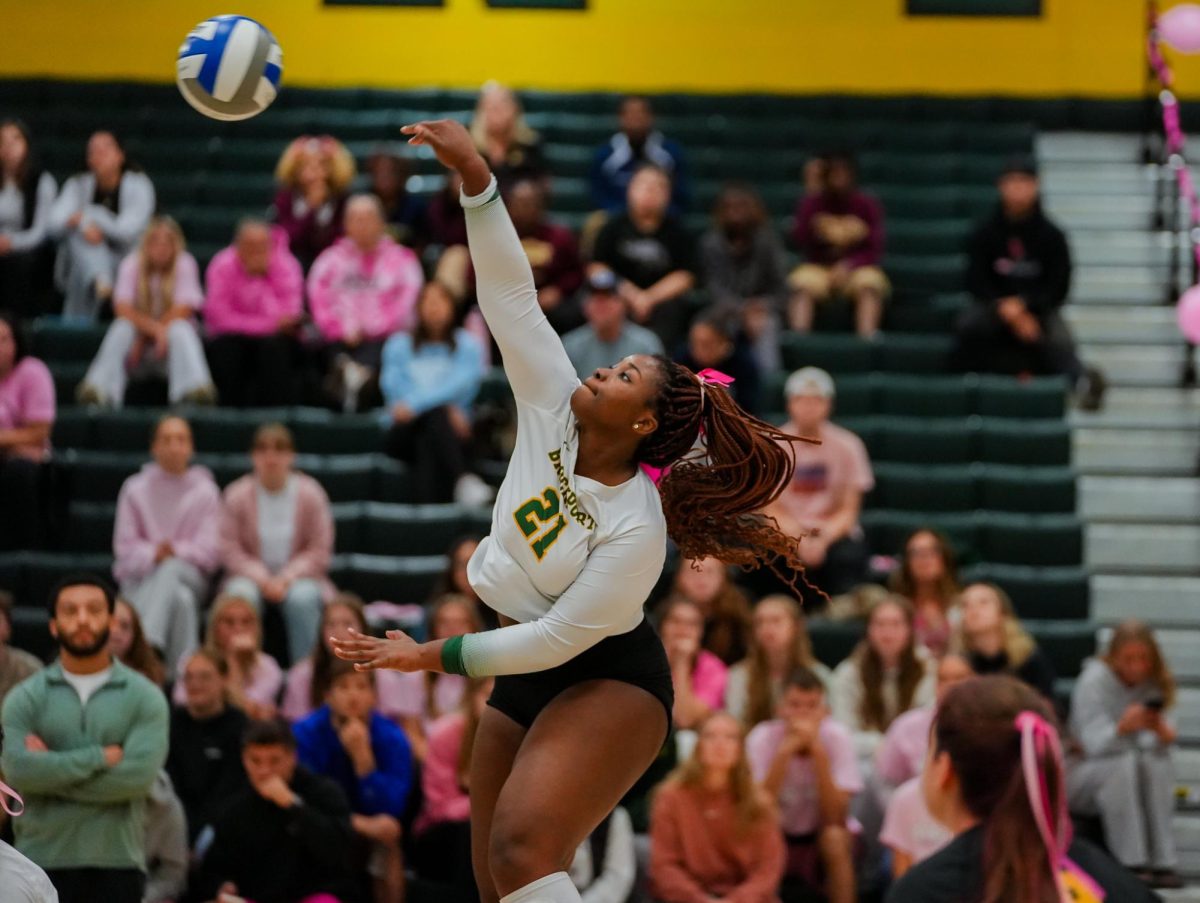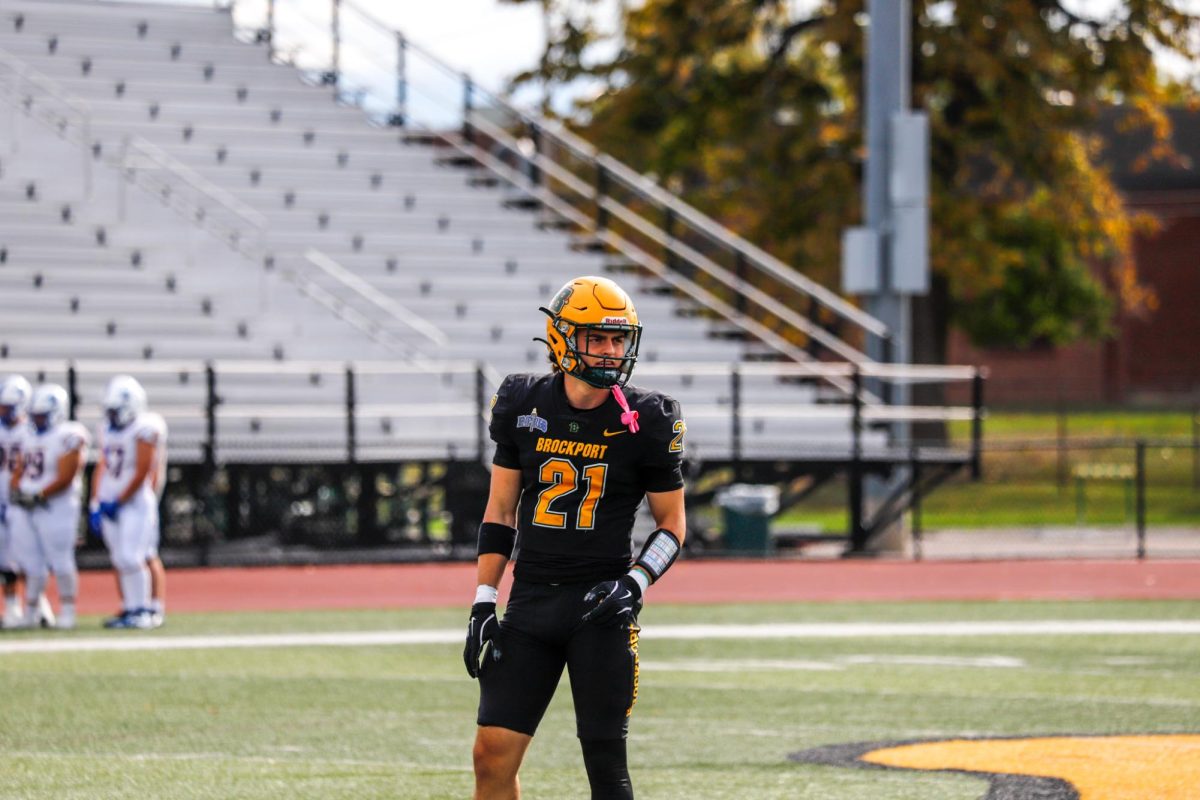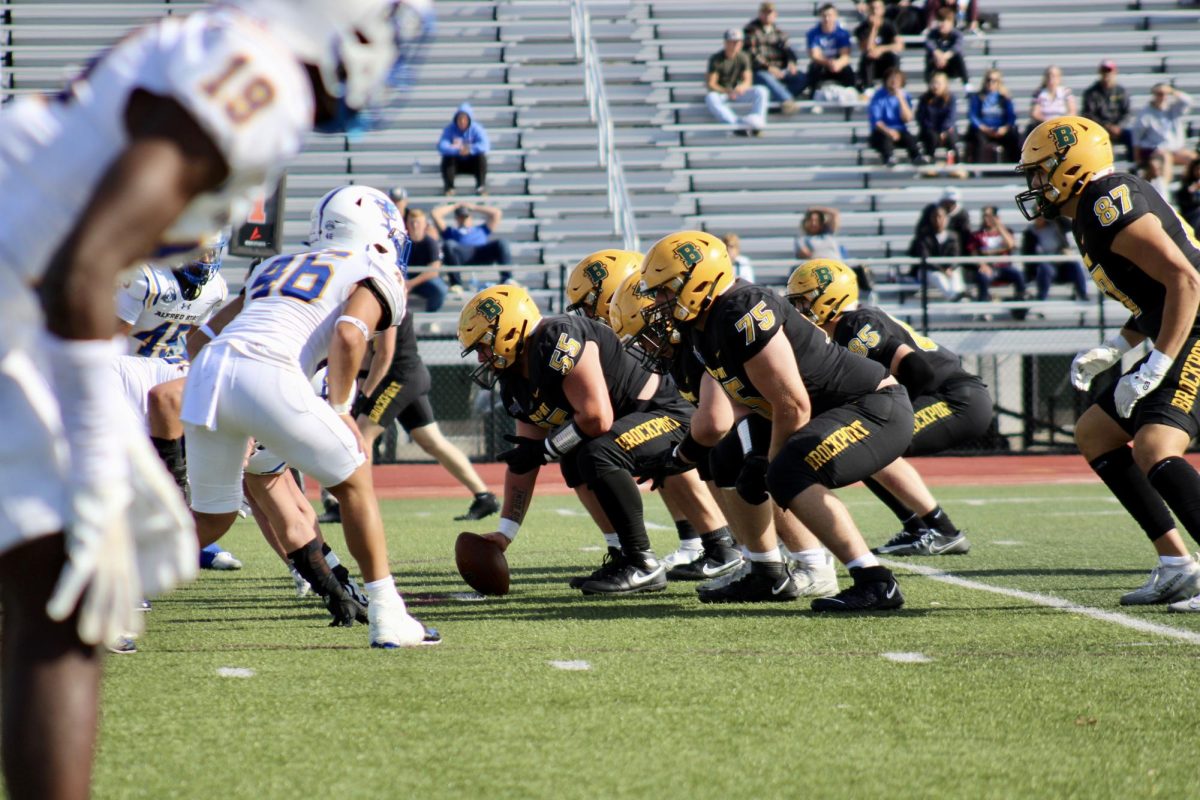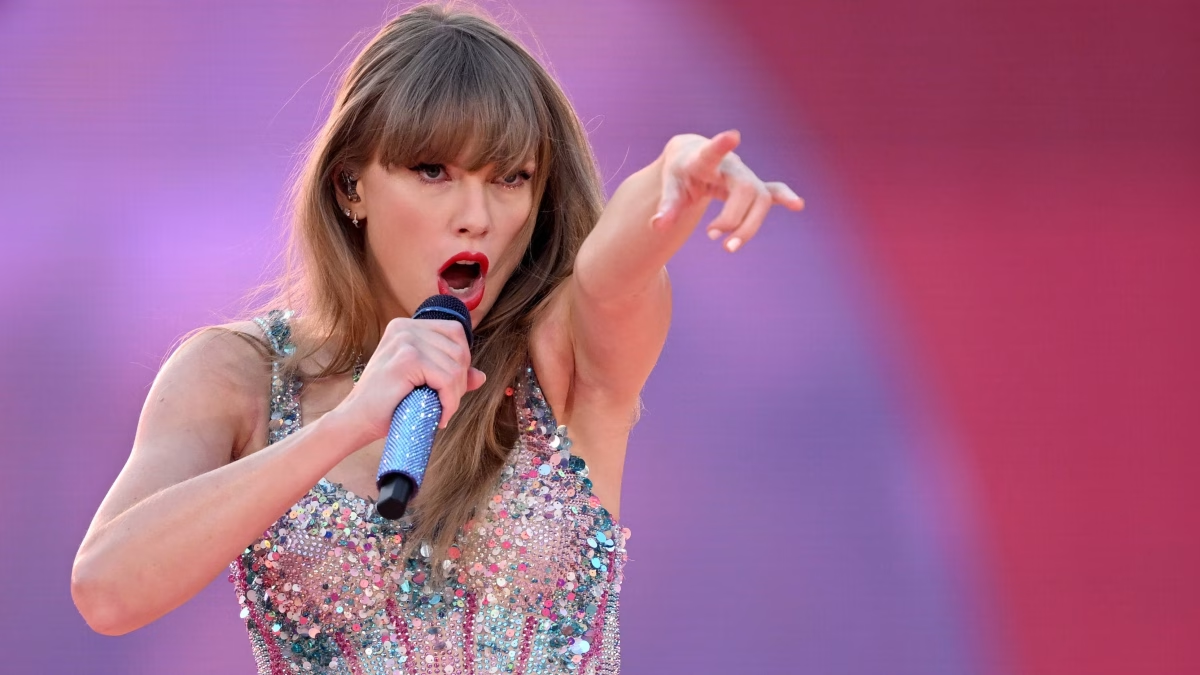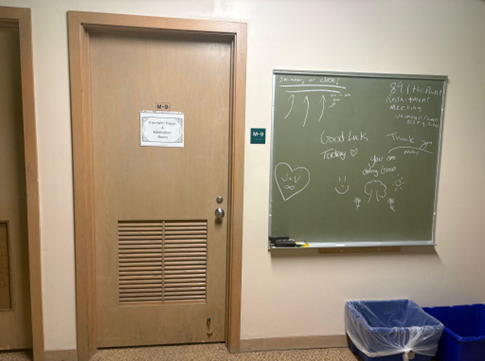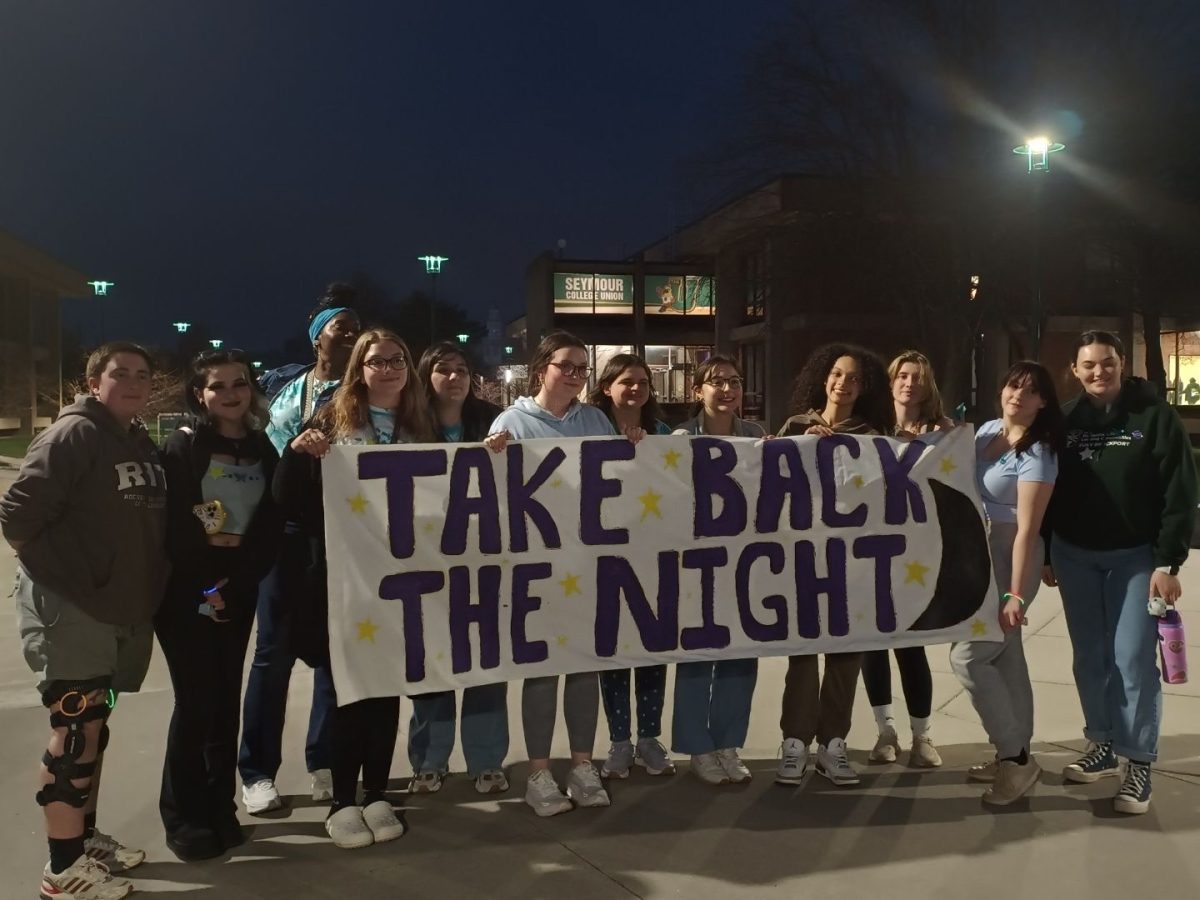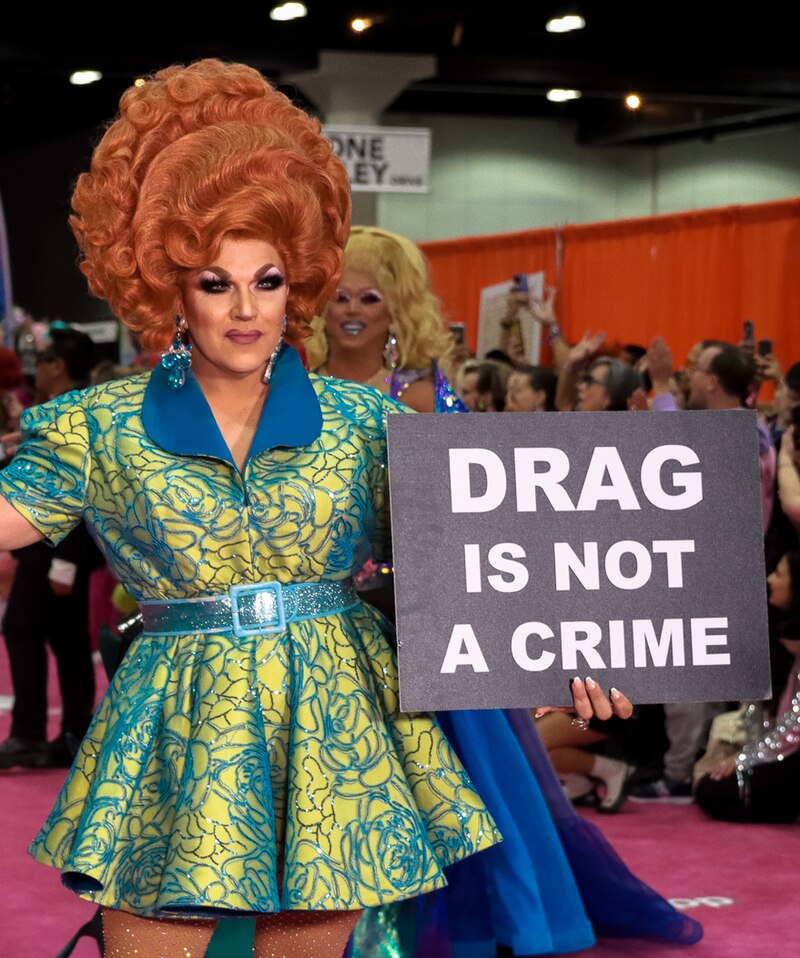Thomas Smalley, better known by his drag persona “Aggy Dune,” is a trailblazer in the world of drag and a leader in the LGBTQ+ community. As one of the owners and the long-time host of “Miss Gay Rochester,” Smalley uses his platform to effect positive change in the community. Notably, “Miss Gay Rochester ” holds the prestigious title of being the longest continuously run drag pageant in the country, having begun in 1971. It continues to be a treasured Rochester tradition to this day. Having hosted the pageant for numerous years, Smalley is a seasoned professional and is performing just as much as the contestants.
“If you’re going to be the host you’ve got to do something to entertain the crowd,” said Smalley.
To captivate the audience all evening, Smalley plans to do a full costume change every time he exits the stage. This will total over 30 changes throughout the evening. This dedication is a testament to Smalley’s passion for drag and commitment to giving the audience an unforgettable experience.
A unique aspect of “Miss Gay Rochester” is its accessibility. Unlike many other pageants that span a week and require contestants to cover lodging costs, “Miss Gay Rochester” has been condensed into a single night. The categories are also designed to be inclusive, with contestants being asked to showcase outfits that they likely already owned such as evening gowns and swimwear. This limits a financial barrier and makes the pageant more accessible and inclusive to more contestants.
In the current political climate, drag has become a polarizing topic. Pageants such as these, while extravagant and fun, are also a way of saying the queer community is here, has always been here and isn’t going anywhere. While each contestant is working hard to give the best performance they can, they also have to carry a keen awareness that they are acting as a spokesperson for the community.
“The queens are always thought of as the ambassadors of the gay community because they are the most identifiable people in the room, like a float in a parade,” said Smalley.
Smalley has many goals with this pageant. The first is simple; keep the audience entertained and respect their time. The other is to affect the audience with how they were kept entertained. Because drag is an art, it is subjective and people interpret it in numerous ways.
“I want them to leave thinking this is so much fun, this is a community coming together to celebrate their best and brightest up on stage,” said Smalley. “Drag can be seen as many different things…through the lens of current politics: taboo, degenerate, a crime, that you’re just a bunch of clowns playing dress up. This is an art form, these people are applying themselves and expressing themselves in a way that shows grace and beauty, and that I believe in myself so much that I am putting myself out there to be judged.”
Rochester has a rich history of gay culture and it is community members who rise to the challenge of being leaders that make it possible for this culture to continue to thrive. Owner of the LGBTQ+ nightclub “ROAR” David Chappius, also known by his stage name “Dee Dee Dubious” will be competing at this coming “Miss Gay Rochester.” “ROAR” features drag performances and provides a safe space for the gay community. Something notable about “ROAR” is that it is an 18+ club. Making the age limit 18 rather than 21 costs them money, as it makes insurance prices higher, there is a higher demand for security, and those people will not be purchasing anything from the bar. While most of the patrons are over 21 years old, it is important to Chappius that the limit stays at 18 so queer youth have a space where they feel comfortable being themselves.
“We have a really large population of transgender kids in Rochester and they would have nowhere else to go if they didn’t have ‘ROAR,'” Chappius said.
Former winner of “Miss Gay Rochester” Ed Popil, or more recognizably his character “Mrs. Kasha Davis,” challenges the pageant circuit to put less of a focus on physical beauty and look deeper into what art the contestants are presenting and what it is they are trying to express. Popil mentioned that drag pageants were made to emulate a “Miss America” pageant, but the problem with that is all the contestants tend to look the same. Popil expressed that what is important is the light the contestant brings to the stage and the message they are communicating to the audience.
“It is being challenged to evolve because the world is starting to be more open, accepting, and inclusive,” Popil said.
In a time when gay rights are being threatened, it is people like this who ensure the celebration of diversity and inclusion will continue. By using their platforms to campaign for acceptance, they promote the ability to appreciate the beauty in our differences.



